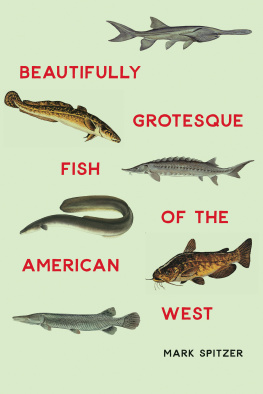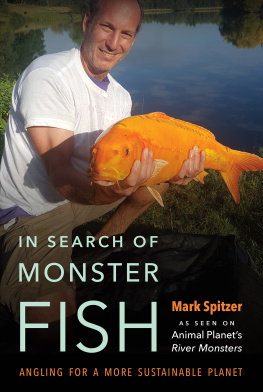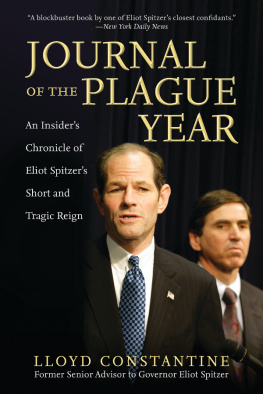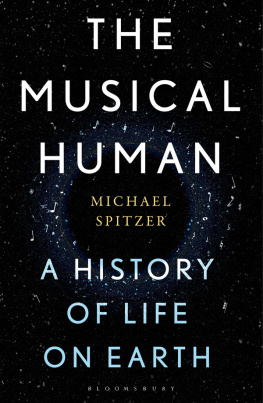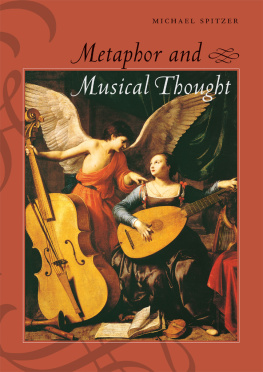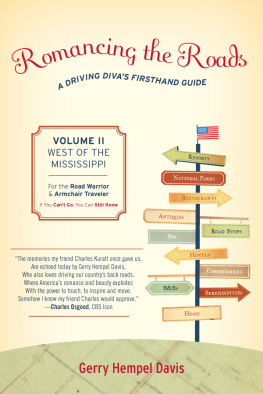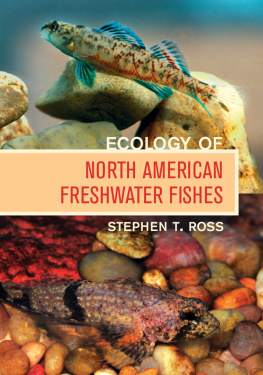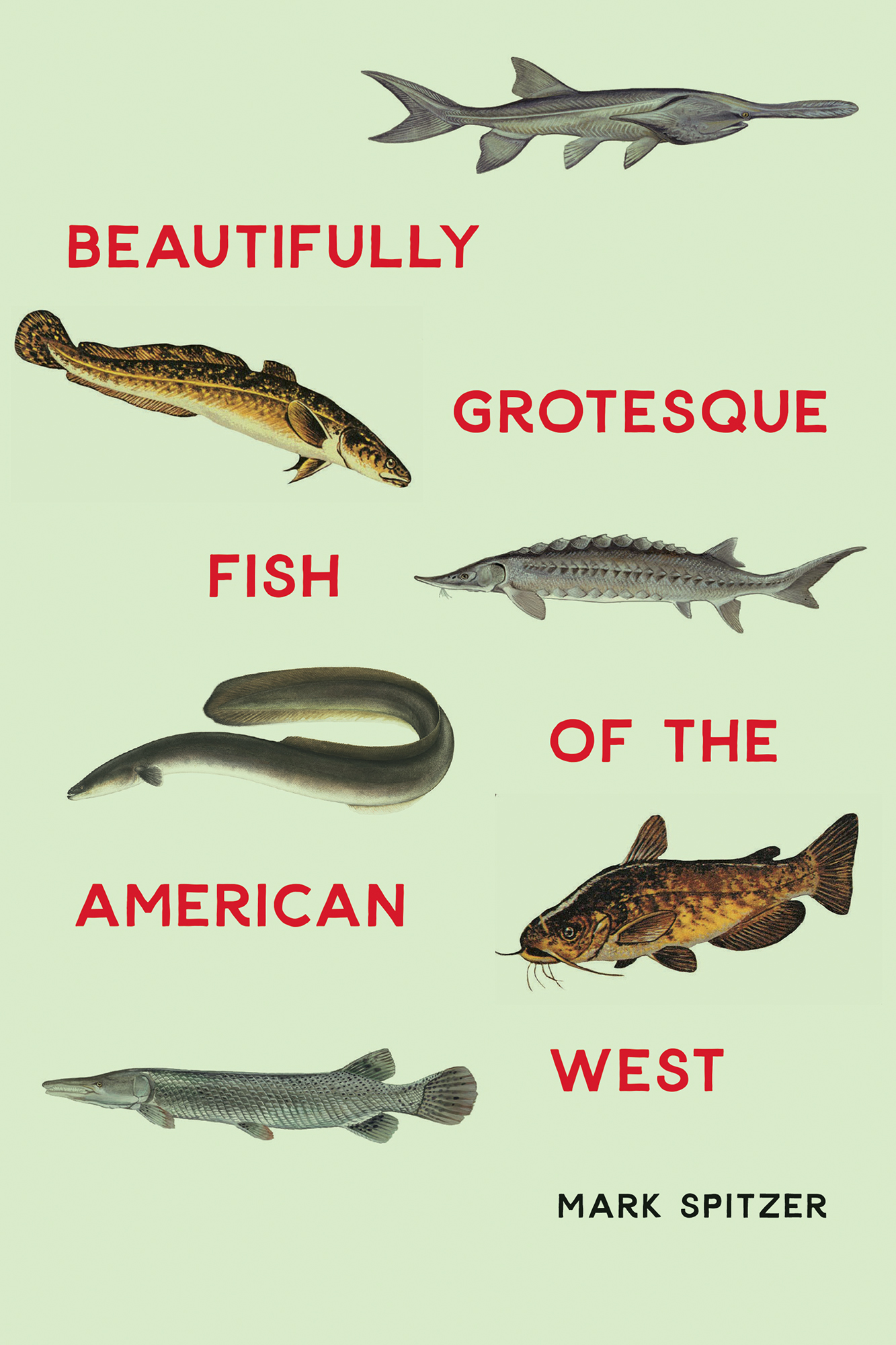A wild foray into fishing the industrial edge, and a marvelous read about the fish few of us will ever know.
Kevin Mattson, avid fisherman and Connor Study Professor of Contemporary History at Ohio University
Mark Spitzer fishes his way across the West, stalking unique, maligned, and ugly species while enlightening readers on their ecological roles and conservation statuses.... A fun and, at times, hilarious adventure. Creative and unassuming, this is a wonderful addition to fishing literature.
Mark Spitzer manages to capture all our favorite grotesque fish in his latest frenetic adventures while making you feel like youre right there with him in the boat! He also delivers a genuine message of conservation to benefit fish and people.
Solomon R. David, postdoctoral research associate at the John G. Shedd Aquarium
Beautifully Grotesque Fish of the American West
Mark Spitzer
University of Nebraska Press | Lincoln and London
2017 by the Board of Regents of the University of Nebraska
Cover designed by the University of Nebraska Press; cover illustrations courtesy of the National Oceanic and Atmospheric Administration, Great Lakes Environmental Research Laboratory (burbot, catfish); New York State Department of Environmental Conservation (eel); and U.S. Fish and Wildlife Service, Duane Raver (paddlefish, sturgeon, gar).
was broadcast on NPR s Tales from the South in September 2014
All rights reserved
Publication of this volume was assisted by a grant from the Friends of the University of Nebraska Press
Library of Congress Cataloging-in-Publication Data
Names: Spitzer, Mark, 1965, author
Title: Beautifully grotesque fish of the American West / Mark Spitzer.
Description: Lincoln: University of Nebraska Press, 2017. | Series: Outdoor lives series | Includes
Identifiers: LCCN 2016024935 (print)
LCCN 2016048655 (ebook)
ISBN 9780803265233 (cloth: alk. paper)
ISBN 9781496200044 (epub)
ISBN 9781496200051 (mobi)
ISBN 9781496200068 (pdf)
Subjects: LCSH : FishesWest (U.S.)
Classification: LCC QL 628. W 39 S 65 2017 (print) | LCC QL 628. W 39 (ebook) | DDC 333.95/60978dc23
LC record available at https://lccn.loc.gov/2016024935
The publisher does not have any control over and does not assume any responsibility for author or third-party websites or their content.
Contents
In Wildness Is the Preservation of the Grotesque and Vice Versa
If I didnt write this book, Id have two questions about the title. First, whats the definition of Beautifully Grotesque? And second, where exactly is the American West? But since I did write this book, and since others may have the same questions, thats where Ill begin, starting with the geographical question.
The Mississippi River, of course, runs right down the middle of the country and, for centuries, has been historically regarded as the eastern border of the West. Even before the pioneers, this metaphorical dividing line between what used to be seen as the known and the unknown has essentially served as a symbolic gateway to the Frontier. And since the fish I know best are to the west of this river, and since this rivers role as the edge of the West is a firmly established theme in American literature (as in Huck Finn lighting out for the Territory), I chose this boundary, like many others have in the past, to define the western states.
The idea, however, that the West represents vast expanses of wilderness that are rich in possibility is a bit antiquated now that the teeming cities and industry of the East have migrated west, homogenizing the entire country. Thus it may be too simple to continue to think of the East and West as representing the old and the newor, as Henry David Thoreau once pictured this contrast, as civilization vs. the Wild. These and study the works of art and literature, retracing the steps of the race; we go westward as into the future, with a spirit of enterprise and adventure. Thoreau also writes, The West of which I speak is but another name for the Wild... in Wildness is the preservation of the worldwith which I agree in principle. But as just noted, Im not convinced that our romantic ideas about the West are as definitive as they used to be.
Ive been using these Thoreau quotes for the last fourteen years in the environmental courses I regularly teach, and they work well for introducing college students to the question of Americas western identity. I follow the Thoreau discussion by asking students to brainstorm what represents the West for them, and I write their answers on the board: mountains, cacti, cowboys, Indians, wagon trains, prairie dogs, the Grand Canyon, Wall Drug, the Gold Rush, oil wells, mind-numbing drives across Nevada, etc. These are some of the typical responses, but theres still a defining characteristic thats part of the modern discussion but usually escapes being mentioned. So I give them a hint: that its more of a lack of something than a presenceand somebody usually gets it.
Water is a natural resource that everybody everywhere needs to survive. As I point out in my eco-classes, we couldnt have established this country from coast to coast if we hadnt found ways to harness this resource and exploit it for our national expansion. I bring this up in order to move on to the that examine how we founded major cities in hostile environments, created water wars between competing states, constructed a highly complex system of levees and dams and channels for irrigation, and commenced a history of both sanctioned approaches and guerilla tactics to preserve our natural heritage.
But in that classroom moment focused on defining the West, and especially in Missouri, where I began teaching this perspective, the eyes would start to roll. Basically, the students were skeptical of water being so important. That is, until Id ask them to name one natural lake in the state. Id receive a bunch of responses, but then Id explain that natural lakes are formed by glaciations, which lakes in Missouri never had. Sure, Id go on, there are oxbows and sinkhole ponds. But according to the Missouri Department of Conservation, those dont count as natural lakes. As for the rest of the lakes in Missouri, those are all reservoirs. Because these days, part of what defines the American West is our consciousness of water, which is something we take for granted, as if its always been here and will always be here. As if all we have to do to get some is turn on the faucet. Then Id drop the bombshell by telling them that because of our water use, Missouri is the American West.
The students would look around at one another, clearly out of their comfort zone. Seeing themselves as lifelong midwesterners, they were always reluctant to accept this hypothesis just because some professor had a crackpot theory. And when I moved to Arkansas and gave college students a similar spiel, the reaction was the same. Having identified themselves as southerners all their lives, it didnt compute for some northern professor to tell them they were westerners.
But the thing is, under this definition of the American West, were all becoming westerners. Water is scarcer, toxic spills are on the rise, the aquifers are compromised, and there are water shortages right now in states like Wisconsin, where rivers and lakes abound and theres even a Great Lake.

